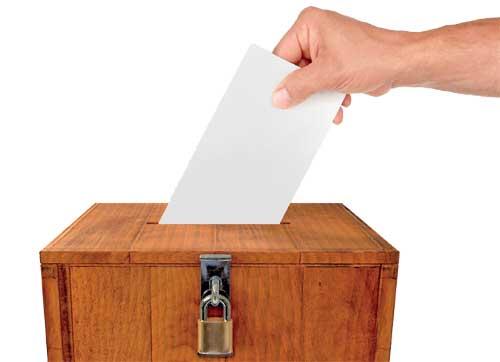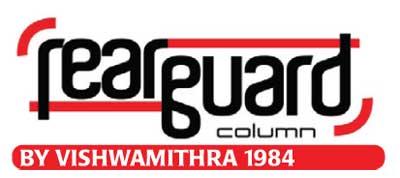Reply To:
Name - Reply Comment
 “The mystery of human existence lies not in just staying alive, but in finding something to live for.”
“The mystery of human existence lies not in just staying alive, but in finding something to live for.”
Fyodor Dostoyevsky, The Brothers Karamazov
Once again, maybe for the umpteenth time in the midst of election euphoria, we are talking about the upcoming presidential poll and its candidates. Who is coming from the United National Party (UNP), who is representing the Pohottuwa and is Maithripala Sirisena, the incumbent President, preparing to contest again and if so from which party, is the Janatha Vimukthi Peramuna (JVP) fielding a candidate, what are the chances for any candidate if the Tamil National Alliance (TNA) decides to field its own candidate are amongst the questions one asks oneself these days but to everyone’s utter dismay, no clear answer is forthcoming from any of the political parties and alliances.
When the election season arrives, those who gain most from it, at least in the context of financial gains, are media moguls, except the very candidates, among them those are at higher levels of prominence, who receive massive amounts of cash donations from their own sponsors, corporates, individuals and perhaps some foreign organisations such as diasporas of all denominations. Some of these diasporas might have their own favourite candidates.
- Politicians are becoming more accessible but to no real material purpose
- Influence and avarice of politicos play a pivotal role in defining the ordinary man’s ability to put food on the table
Yet, one stark truth remains latent and unattended to: that is the fact that whether elections come and go, whether the candidates win or lose, whether the media organisations make profits or losses, the voters at large do not stand to gain anything, none whatsoever. Time after time, election after election, it has been shown that the ordinary voter, the average Saranapala and Siriyalatha, the average Subramaniam and Rasamma, the average Mohideen or Fathima, the ordinary folks who day in and day out sweat and spend all their waking hours to make ends meet, do not stand to gain any reasonable ground after the election.
The story is getting bleaker and bleaker with each election cycle; the successive generations in the country are finding it extremely hard to put up with each succeeding government; the politicians are in fact becoming more accessible but to no real material purpose. The economic status or the poor is becoming impossible; their children are messed up; either they are begging at the corner of an urban street or addicted to the dangerous drugs that are increasingly becoming available at affordable prices. While the drug industry, as an easy means to quick wealth, especially among those who are closest to politicians, and those who consume its products are being subjected to a pitiful way of life and a livelihood far beyond one’s comprehension.
 This melancholy element of life is fast becoming a reality among the young and uneducated. Birthday parties of children who attend overseas schools are the breeding ground for these nefarious activities of experimentation with treacherous drugs. When parties are in session in the exclusive halls of McDonalds fast-food restaurants, what is most wretched scenery is of those children who cannot afford to either pay for such parties or not among the qualified to be invited to such parties, hanging on to the outside railing of the halls, with their mouths open, salivating and watching those who are better off than they are, dancing and cutting cakes, the taste of which they never ever had the opportunity to taste. The widening gulf between the haves and have-nots is visible and inviting many a social scientist to research and really find nothing as it seems for such social scientists do look for the nuanced aspects of life rather than at the obvious facts that surround an ordinary man’s daily life.
This melancholy element of life is fast becoming a reality among the young and uneducated. Birthday parties of children who attend overseas schools are the breeding ground for these nefarious activities of experimentation with treacherous drugs. When parties are in session in the exclusive halls of McDonalds fast-food restaurants, what is most wretched scenery is of those children who cannot afford to either pay for such parties or not among the qualified to be invited to such parties, hanging on to the outside railing of the halls, with their mouths open, salivating and watching those who are better off than they are, dancing and cutting cakes, the taste of which they never ever had the opportunity to taste. The widening gulf between the haves and have-nots is visible and inviting many a social scientist to research and really find nothing as it seems for such social scientists do look for the nuanced aspects of life rather than at the obvious facts that surround an ordinary man’s daily life.
The influence of politicians and their greed and avarice play a huge role in defining the ordinary man’s ability to put food on the table. What social scientists forget is one of the greatest demands of our people’s lives: a suitable school for his child. Those people who have had no special education, with no university degree or post-Advanced Level diploma, yearn to provide what they themselves could not achieve in their simple life. Provision of a better education with no extra fees and economic hardship is of paramount import for all our men and women in the villages. The village farmer has hardly had a chance to elevate his social status from that of a peasant to a farmer or a farming entrepreneur. The sophistication of a wealthy businessman is alien to our farmer and he has had not the opportunity to provide himself with such an erudite system of farming or any such modern scheme which lends itself as an educative tool.
Against such a cruel backdrop what can he do? His immediate attention goes towards those politicians who promise heaven and moon at the election time on those decorated platforms. The politician is corrupt; his very survival is directly dependent upon sustaining his friendships and connections to his sponsoring businessmen who have managed to gain vast profits from the businesses the politician has awarded them. This vicious cycle of corruption keeps turning and the poor villager neither sees it nor does he seem to care as he has his own quota of worries.
"Come election time, these ordinary men and women should tell our wretched politicians to go to hell. Unless and until they map out a way and path to realistically achievable goals and targets, they must get out of the way"
Today’s politics is just that. Sheer greed for power attired in patriotic slogans has inundated the entire landscape of politics. Whether it’s the Rajapaksas or Sirisena, whether it’s Wickremesinghe or Premadasa, the mould is the same. Minor adjustments made to the customised exterior may change, but the inside core of all these men and women is rotting and stinking. To him arguments and logic behind who will be the candidate, who will be the running mate and who is ahead of whom and who has to do what to get ahead of the other is all irrelevant.
Yet our villager, born in the North, South, East or the West, does not have the elementary capacity to understand this simple logic of power politics or he doesn’t care about such nuances. His preoccupation with his own worries overtakes the social scientists’ analyses. It is more tragic than pitiful; it’s more alarming than just cruel and it’s more man-made than natural – the cycle of power politics. Writers, including yours truly, have ignored these day-to-day worries of the ordinary man and woman. One may say it’s the way of life, yet it’s no reason for a reasonable man or woman to pay no attention to those worries of the ordinary and examine the nuanced sides of human living.
As Minster Navin Dissanayake said the other day, all 225 must go; leave the well of the House of Parliament free and empty. Beginning at the beginning may be one of few choices still available for the well-being of our land. As Dostoyevsky said in Brothers Karamazov, human life, for its sustenance need more than just staying alive. One needs a goal to live for. Our politicians have not provided that vision for our ordinary men and women. Empty election promises are not a vision; false election manifestos do not consist of a broad scope of work an ordinary man and woman should envision for themselves and their children. Leaving a legacy of failure and under-performance is not an option.
Come election time, these ordinary men and women should tell our wretched politicians to go to hell. Unless and until they map out a way and path to realistically achievable goals and targets, they must get out of the way. Brand new faces, brand new personalities who are well-read and educated to a reasonable degree must take to politics.
But I’m sure it won’t happen. The same old machine will grind its wheels and produce the same old noise and throw out the same old slogans and promises. The system is too corrupt to attract opposite revolt. The breaking point is yet to come. But the social media has revolutionised the way we communicate with each other. That ordinary villager has access to such modern-day gadgetry and is eager to use it. But the social media too has its inherent wicked ways of being fake!
Then who is to blame and who is to take corrective measures. Democracy has shown us, amidst many a shortcoming and inadequacy, that it, amongst many, is the only decent and civil system of governance the citizenry can tolerate. To withstand its inadequacies and adjust to its varying measures of demands is no way easy and a placid people would ultimately pay an unpalatable price.
The writer can be contacted at [email protected]